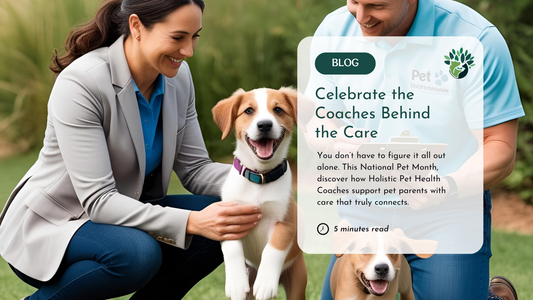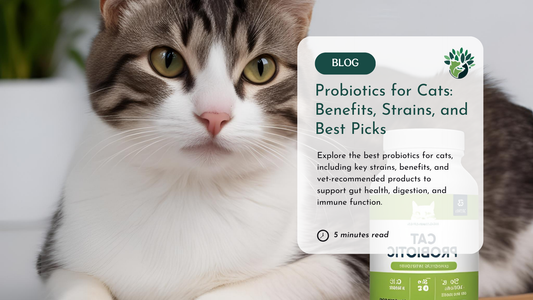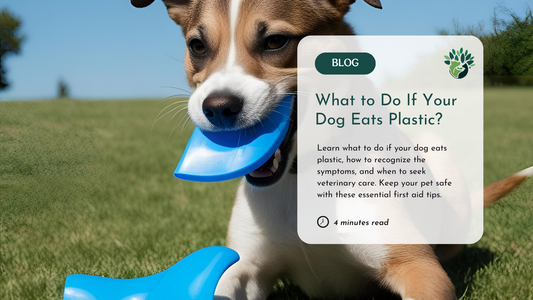If you’re thinking about adopting a pet for the first time, understanding the dog person vs cat person dynamic can help you make a more thoughtful decision.
Knowing your own personality traits, can guide you toward the pet that fits your lifestyle. Dogs and cats offer very different kinds of companionship, and choosing one that aligns with your needs increases the chances of a strong, lasting bond.
So if you're asking yourself, "Should I get a dog or a cat?", you’re not just picking a pet. You're choosing a partner whose temperament complements yours.
Dog Person vs Cat Person: What the Science Says
In a study by Sam Gosling, a psychologist at the University of Texas at Austin, researchers explored the personality differences between people who prefer dogs, cats, both, or neither. The study surveyed 4,565 participants, asking them to self-identify as dog people, cat people, both, or neither—and then assessed them using the Big Five personality traits.
The Results:
-
46% identified as dog people
-
12% as cat people
-
28% liked both
-
15% chose neither
Gosling concluded that the types of pets people gravitate toward may align with their psychological profiles. So this dog person vs cat person dynamic isn’t just cultural—it’s rooted in personality science.
Dog vs. Cat: Which Pet Fits You Best?
|
If You... |
🐶Dog Might Be Better? |
🐱Cat Might Be Better? |
|
Enjoy structure, routines, and daily schedules |
Dogs thrive on routines like walks, meals, and training |
Cats are flexible and don’t need a set schedule |
|
Love being outdoors or staying active |
Dogs make great hiking, walking, or jogging buddies |
Cats are homebodies who prefer indoor exploration |
|
Want a companion for social activities |
Dogs are social and love meeting people and other dogs |
Cats prefer calm, familiar environments |
|
Prefer loud, enthusiastic affection |
Dogs express love with tail wags, kisses, and excitement |
Cats are affectionate in quieter, more subtle ways |
|
Want to train your pet or teach tricks |
Dogs enjoy training and learning commands |
Cats can be trained—but on their own terms |
|
Work from home and want interactive company |
Dogs may sit at your feet, follow you around, or nudge for play |
Cats often sit near you without being clingy |
|
Live in a small apartment or quiet space |
Dogs need space and outdoor time |
Cats adapt well to small, quiet indoor spaces |
|
Travel frequently or work long hours |
Dogs need daily care and attention |
Cats can be left alone longer and are more independent |
|
Like a calm, low-maintenance companion |
Dogs require more daily care, grooming, and exercise |
Cats are lower maintenance overall |
|
Are emotionally sensitive or introverted |
Dogs are empathetic, but sometimes intense |
Cats offer quiet companionship and space |
|
Have allergies or sensitivities |
Some dogs are hypoallergenic |
Cats shed dander more, but some breeds produce less |
|
Have young children at home |
Many dog breeds are great with kids and playtime |
Some cats may not tolerate noise or rough handling |
|
Prefer a quiet home and don’t like a lot of fuss |
Dogs can be noisy and excitable |
Cats are quieter and more self-regulating |
|
Enjoy nurturing or caretaking roles |
Dogs need regular feeding, walking, and grooming |
Cats need care, but are more self-sufficient |
|
Value personal space and independence |
Dogs may follow you everywhere |
Cats often entertain themselves and give you space |
Final Thoughts
The connection we share with our pets goes far beyond companionship—it’s a relationship shaped by mutual understanding, energy, and personality. Whether you're adopting for the first time or considering adding another furry friend to your home, asking yourself whether you're more aligned with a dog’s enthusiasm or a cat’s quiet independence is a powerful first step.
Choosing between a dog and a cat isn’t about which animal is better—it’s about which one fits your life, your rhythms, and your emotional needs. If you crave daily structure, outdoor adventure, and visible affection, a dog might be the perfect match. If you appreciate solitude, subtle bonding, and a more relaxed pace, a cat could be your ideal companion.
Take time to reflect on your lifestyle:
-
How much time are you home?
-
How active are you day-to-day?
-
Do you value routine or flexibility more?
These questions can guide you to the pet who won’t just live in your home—but truly belong there.
















